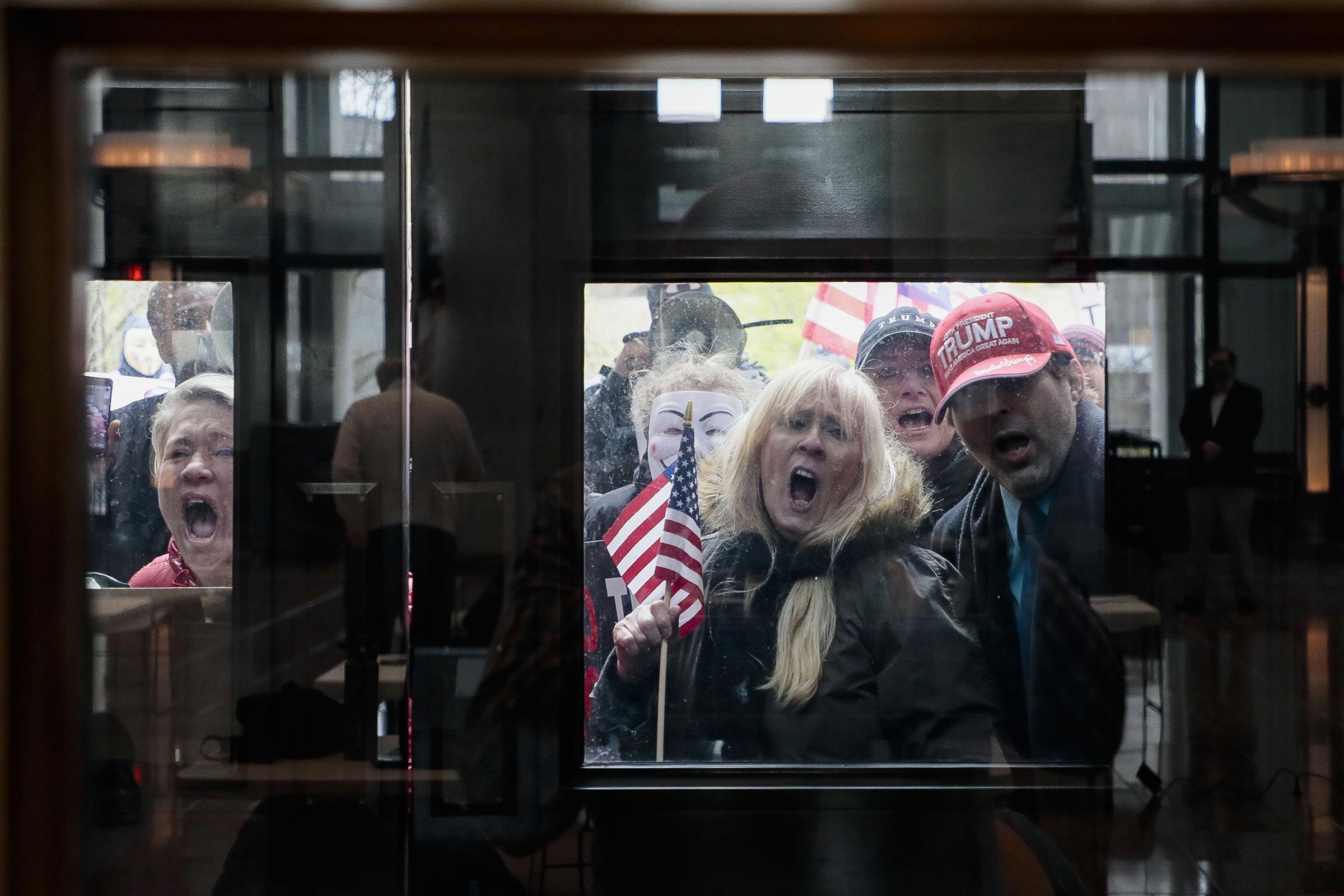Populism or Neoliberalism? Explaining the Politics of the Pandemic
archive


Populism or Neoliberalism? Explaining the Politics of the Pandemic
Since 2016, the year of the Brexit referendum and Trump’s election, populism has been a buzzword in the center of scholarly, media and popular attention. Unsurprisingly, issues raised by the “populist wave” have, from the very start of the pandemic, been at the heart of the debate on the political implications of COVID-19, also in this journal.1 However, pondering questions such as “Is coronavirus bad for populism?” or “How do populist leaders respond to it?” is unlikely to bring significant insights into the politics of coronavirus. Such questions presume that populism is a cohesive phenomenon with broadly predictable consequences. But it is nothing of the sort; in reality it is a catch-all category with no specific content and so may produce very different outcomes depending on the political agendas that the respective instances of populism are associated with.
The concept of populism has been used to describe political actors of both the right and the left, conservative as well as progressive, religious or secular. Historically, the description has been applied to the American People’s Party and the Russian narodni movement of the nineteenth century, and to Argentinian Peronism and French Poujadists of the 1950s. More recently, populism has been employed to explain the nature of both the Tea Party and Occupy movements, of the leftist Spanish Podemos party and the one-issue Brexit Party in the UK; of South American socialist leaders, Chávez and Morales (but in the 1990s outright neoliberals too, like Peru’s Fujimori), yet also European far-right nationalists, such as Le Pen, Salvini, and Wilders. In the UK, it is taken for granted that both Corbyn and Johnson are definitely populists, as is the case in the US with Sanders and Trump. Figures such as Erdoğan in Turkey, Duterte in the Philippines, Bolsonaro in Brazil, Orbán in Hungary, and Kaczyński in Poland have all been viewed as populists first and foremost.
Looking at this list, it is hard to say what these politicians and groups have in common except a very thin common denominator, namely their claim to represent “the pure people” against “the corrupt elite.”2 However, it is the vacuity of the two antagonistic categories that leaves populism unable to overcome its skeletal parameters without preying on the ideational repositories of mature political ideologies. After all, “the people” may be defined by, for example, their nationhood and ethnicity, as in right-wing variants of populism, or by their socio-economic class, as in socialist versions. The latter option has very different implications than the former.
What about COVID-19? A comprehensive report published by scholars from Oxford University3 makes it possible to compare measures implemented by governments across the world such as school closures or bans on public gatherings and travel. Taking a look at countries ruled by populist governments, it seems that populism as such has not had specifiable influence on policy-making. Attitudes of “populist” regimes towards the pandemic varied and some of them followed the same strategies as those pursued by “non-populist” governments. There is also significant variability in terms of the speed at which difficult lockdown decisions were made, with populist-ruled countries such as Poland, Hungary, and India acting much faster than some other populist governments in the US, the UK, or Brazil.

Protesters against COVID-19 measures at the statehouse in Columbus, Ohio in April 2020. (Photo credit: AP)
While policies adopted by populists have not been markedly different from non-populist measures, there is something that (right-wing) populist regimes share in the current context, namely, how they have used the pandemic to buttress their xenophobic and nationalist agendas. The most notorious example is Donald Trump, who has exploited COVID-19 to ramp up his assault on the rights of migrants. The Department of Homeland Security gained new powers to return illegal migrants to their countries faster and without normal legal procedures. Trump himself tweeted that coronavirus meant “we need the wall more than ever!” and he went out of his way to refer to COVID-19 as the “Chinese virus” thus reviving the old conspiracy myth of the “Yellow Peril.” In Hungary, Orbán was quick to link the virus to immigration and used it as a pretext to shut down Hungary’s asylum system. He was also keen to use the occasion to double-down on his anti-Semitic rhetoric. In India, the ruling Bharatiya Janata party demonized the country’s Muslims as alleged super-spreaders. Even though these cases display a consistent pattern, they do not vindicate populism as analytic category. They are identifiable as belonging to the protracted tradition of exclusionary nationalism and racism, where, as the example of Nazi Germany demonstrates most poignantly, minorities are seen as carriers of the disease if not the disease itself. It is the nationalism, and not the populism, of the politicians and parties in the examples above that brings them together in their attempt to scapegoat the “other” who is to blame for the “plague.”
COVID-19 and Neoliberalism
To legislate emergency measures is one thing, but how countries adapt to them—how effectively, with what implications for other aspects of social life, and at what overall cost—is another. When comparing how countries managed the pandemic so far, it is painfully clear that some of them have paid a much higher price. At the time of writing, the US has one of the highest numbers of COVID-19 cases per one million inhabitants (over 15,000). The UK has the third highest number of COVID-related deaths per one million people (683) and the US has a poor record in this respect as well (488). On the other hand, the rate for Germany is 2,559 cases and “only” 110 deaths. At the opposite end, poor socialist countries such as Cuba, Vietnam and Laos have performed substantially better with, respectively 2726, 747, and 20 cases and only 88, 10 and, in the case of Laos, no deaths. Venezuela has recorded over 22,000 cases, yet in spite of the economic and political turmoil, “only” 195 deaths. This is in huge contrast to Brazil with close to three million cases and almost 100,000 deaths (at a rate of 458 per million people).4

'Which side are you on?" Sao Palo, Brazil, June 2020. (Photo credit: Reuters)
Looking at these extraordinary differences, it is clear that wealth does not make countries more resilient to the pandemic. Rather, it is the degree of marketization—how far social priorities and the mechanisms for meeting them are subject to the market logic—that plays a vital role. Indeed, a clear pattern is discernable from the very high numbers of cases and deaths in neoliberal economies, such as the US or Britain, through dramatically lower mortality statistics in social-market societies, for example Germany, to marginal (comparatively speaking) figures in socialist countries of the Global South.
To be sure, though neoliberalism helps explain these striking differences, it does not operate as a singular causative factor. While neoliberalism is now the dominant ideology globally, it is not a uniform doctrine and its effects differ from place to place. In terms of the current pandemic, other factors exert their impact as well—such as the type and strength of the regime in power, historical and cultural background, and variable international pressures—either compounding or alleviating neoliberal dynamics. Still, the extent of neoliberal influence over social and economic priorities in any given country goes a long way toward explaining the performance of respective governments.
[W]ealth does not make countries more resilient to the pandemic. Rather, it is the degree of marketization...
Notwithstanding differences between its local variants, neoliberalism is associated with austerity, which contributes to rising inequality and exclusion and thus makes it harder to convince the populace to act as if they really are “all in it together.” Neoliberalism also means privatization and deregulation and hence inadequate planning and poor preparedness for events such as pandemics. Markets chase immediate profits and these are unlikely to come from ensuring an adequate quantity of hospital beds, facemasks, or ventilators for potential future emergencies. Of course, governments could be doing this, but from a neoliberal perspective the government is always the problem, never the solution. Recall Reagan’s dictum “The nine most terrifying words in the English language are: I'm from the Government, and I'm here to help.”5 Trump followed precisely this logic when in May 2018 he dissolved the pandemic preparedness unit established by Obama. In the UK, the protracted assault by neoliberal administrations on the once robust NHS, which consisted of selective privatization of its potentially lucrative segments and deliberate underfunding of others, has been a major factor in the abysmal fatality figures recorded in the country. Contrast this with the data from social democratic states, such as Norway with 1,741 cases and 47 deaths per million inhabitants.
There is much work to be done to advance understanding of the factors that have resulted in the highly unequal toll that the pandemic has taken on different countries. But even this cursory reflection leads to a conclusion that neoliberalism is a key element to consider. If so, then another question arises: is it possible that the elevation of populism to the status of the main problem is a hegemonic construct that works to naturalize and dissimulate free market fundamentalism? If populism is a “distraction,”6 then zeroing in on it may be diverting attention from neoliberalism which caused the problems on which populists thrive in the first place.
As of August 2020, the pandemic is ongoing and on an upward trajectory. To understand what is the best way of facing up to COVID-19 it is vital to concentrate on the impact of neoliberalism. The current crisis exposes the neoliberal system’s reckless and oppressive nature. Hopefully it will also provide an opportunity for a collective reconsideration of our values and priorities.
_______
An extended version of this discussion will be published as article in Perspectives on Global Development and Technology in winter 2020.
1.Bufachi, Vittorio (2020). “Is Coronavirus Bad for Populism?”. global-e 13(25)
Retrieved on August 3, 2020 (https://www.21global.ucsb.edu/global-e/april-2020/coronavirus-bad-populism)
2. Mudde, Cas (2004). The Populist Zeitgeist, Government and Opposition, 39(4): 542–563.
3. Hale, Thomas, Samuel Webster, Anna Petherick, Toby Phillips, and Beatriz Kira (2020). “Oxford COVID-19 Government Response Tracker.” Blavatnik School of Government. Retrieved on August 3, 2020 (https://www.bsg.ox.ac.uk/research/research-projects/coronavirus-government-response-tracker).
4. All data retrieved from https://www.worldometers.info/coronavirus/#countries, correct as of August 6, 2020.
5. See: https://www.reaganfoundation.org/ronald-reagan/reagan-quotes-speeches/news-conference-1/, retrieved on August 6, 2020.
6. Nederveen Pieterse, Jan (2018). “Populism Is a Distraction.” New Global Studies, 12(3): 377–386.



